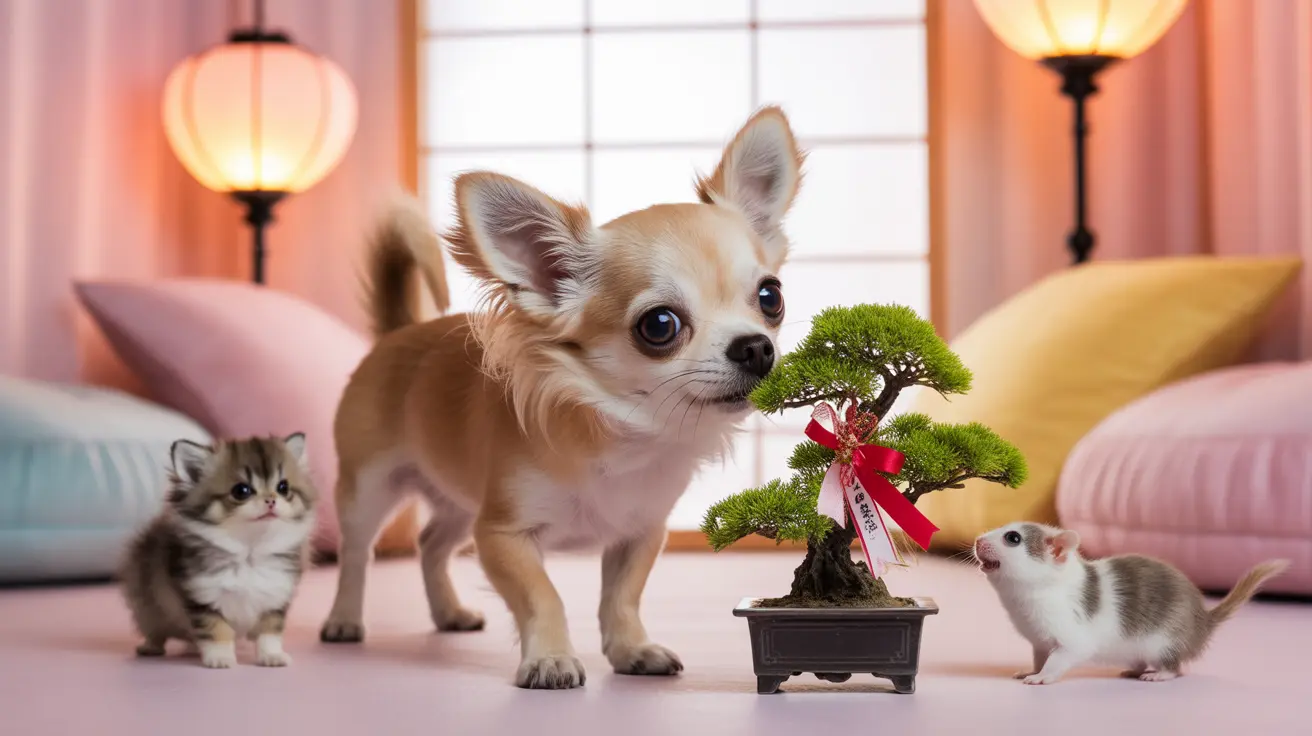The Evolution of Pet Ownership in Japan
Japan's relationship with pets has undergone a fascinating transformation in recent years, with the total number of pets now surpassing the country's child population. As of 2025, there are approximately 15.9 million pet dogs and cats in Japan, compared to 13.7 million children under 15 years old – a striking statistic that reflects both the nation's changing demographics and its deep appreciation for animal companionship.
This surge in pet ownership hasn't happened by chance. It's the result of various societal factors, including Japan's aging population, increasing single-person households, and a cultural shift toward viewing pets as family members rather than mere animals.
Current Pet Ownership Trends
Dogs currently lead the pack in Japanese households, with 51% of pet owners having a canine companion. Cats follow closely behind at 41%, showing strong popularity for both species. The remaining percentage is divided among smaller pets like rabbits, hamsters, and other exotic animals.
What's particularly interesting is the type of pets Japanese people choose. In urban areas, smaller breeds dominate the landscape, perfectly adapted to the compact living spaces typical of Japanese cities.
Popular Dog Breeds in Japan
Japanese pet owners show a clear preference for smaller dog breeds, with the following ranking highest in popularity:
- Toy Poodle (20.3% of owned dogs)
- Chihuahua (11.9%)
- Shiba Inu (8.8%)
- Miniature Dachshund
- Miniature Schnauzer
Favorite Cat Breeds
When it comes to felines, certain breeds have captured Japanese hearts:
- Scottish Fold
- American Shorthair
- Munchkin
- Bengal
- Minuet
Cultural and Practical Factors
The preference for certain pets in Japan is deeply rooted in both practical considerations and cultural significance. Urban living conditions play a crucial role, with smaller pets being better suited to apartment living. Additionally, Japanese folklore and cultural symbols, such as the lucky Maneki-neko (beckoning cat), have helped cement the popularity of certain animals in the cultural consciousness.
The rise of pet-friendly infrastructure has also contributed to the boom in pet ownership. From pet cafés to specialized veterinary services and pet insurance, Japan has developed a comprehensive support system for pet owners.
Economic Impact and Industry Growth
Japan's pet industry is thriving, with substantial growth in pet-related products and services. From premium pet food to luxury accessories and sophisticated medical care, Japanese pet owners are known for their willingness to invest in their animal companions' wellbeing.
Frequently Asked Questions
What are the most popular pet dog and cat breeds in Japan in 2025?
The most popular dog breeds are Toy Poodle, Chihuahua, and Shiba Inu. For cats, Scottish Fold, American Shorthair, and Munchkin lead the rankings.
Why are small dog breeds like Toy Poodles and Chihuahuas so favored by Japanese pet owners?
These breeds are preferred due to their compatibility with small apartment living, lower exercise requirements, and quieter nature, making them ideal for urban environments.
How does Japan's urban living environment influence pet ownership and breed preferences?
Limited living space in Japanese cities drives the preference for smaller pets that require less space and are better suited to apartment living.
How has Japan's aging population affected the rise in pet ownership compared to children?
With 15.9 million pets compared to 13.7 million children under 15, pets increasingly fill emotional needs in an aging society with fewer children.
What cultural factors make cats and dogs especially popular as pets in Japanese households?
Cultural symbols like the Maneki-neko for cats and the loyal nature associated with dogs, combined with their suitability as companions in urban settings, make them particularly popular choices.
Conclusion
The landscape of pet ownership in Japan continues to evolve, shaped by demographic changes, urban living conditions, and cultural preferences. As the country moves forward, the bond between Japanese people and their pets grows stronger, reinforcing Japan's position as a nation of devoted pet owners.






